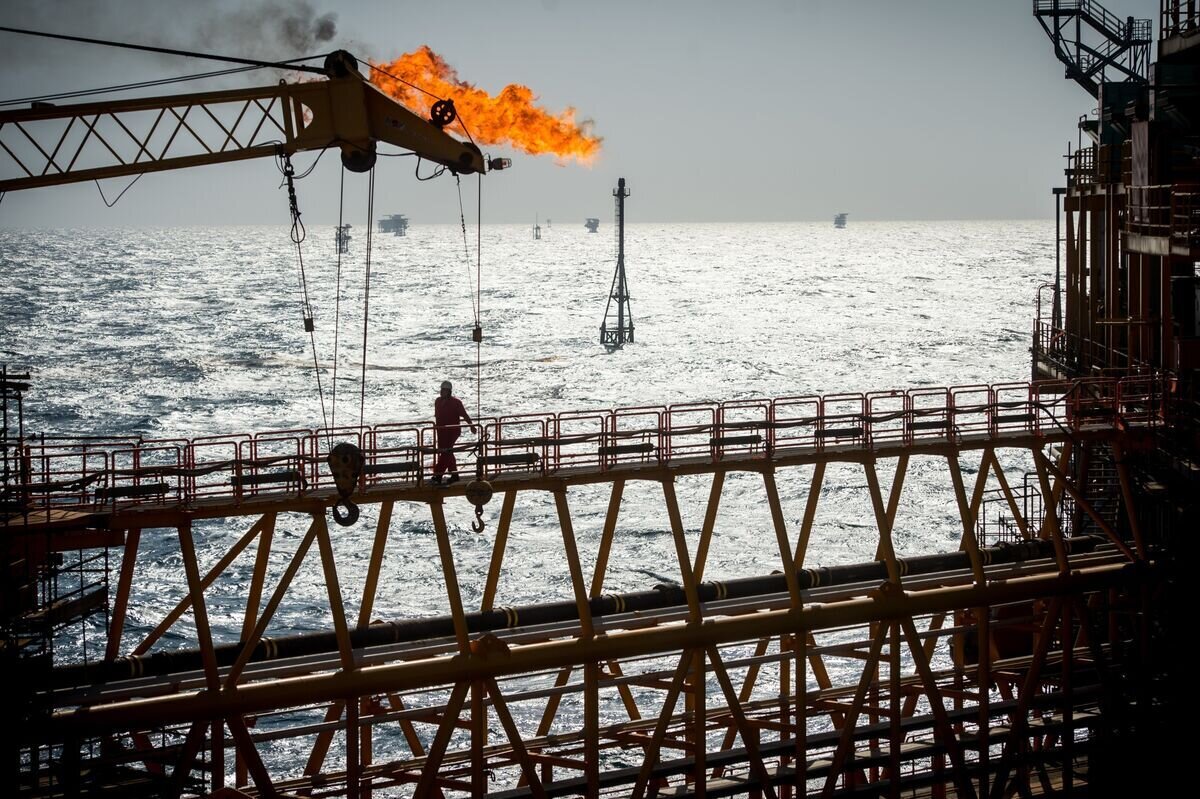Introduction
Economic sanctions have a dual impact, affecting both the targeted country, such as Iran, and the imposing nations. Iran possesses abundant energy resources, ranking third globally in terms of crude oil reserves and second in natural gas reserves, following Russia (Best Diplomats, 2024, https://is.gd/f6Twvf). Notably, the South Pars field in the Persian Gulf stands as one of the world’s largest natural gas fields. Crude oil exports play a vital role in Iran’s revenue, constituting a significant portion of its foreign exchange earnings.
With its abundant energy resources, Iran plays a vital role in the global energy supply. Therefore, collaborating with Tehran in this field could serve the mutual interests of Iran and the cooperating countries. The imposition of sanctions against Iran presents a challenge to this matter. It should be noted that the sanctioning countries, including Europe, have also experienced significant losses in this sector. This article aims to address the most crucial impacts of these anti-Iranian sanctions on Europe’s energy interests. These effects primarily involve the escalation of oil prices, intensified challenges for European refineries, such as losses and higher-than-anticipated costs of replacing Iranian oil, as well as the absence of Iran as a natural gas supplier.
Increase in Oil Prices
The imposition of sanctions against Iran had a significant impact on the global oil market, leading to a surge in oil prices. The decision to impose sanctions on Iran coincided with a period of financial crisis in European countries, resulting in disagreements among EU member states. Furthermore, even prior to the approval of the sanctions, the International Monetary Fund had already expressed concerns about the economic conditions within the European Union. Statistics indicate that Germany has been the most affected among European countries in terms of the costs incurred due to the sanctions. While Iran faced challenges as a result of the sanctions, European countries also experienced substantial costs and energy implications, such as the loss of exports and financial services.
As a result of the sanctions, China was able to purchase Iranian oil at a significantly reduced price compared to the market rate and subsequently re-export it to Europe. This allowed Chinese oil companies to take on extensive Iranian oil and gas projects, establishing themselves as the primary buyers of Iranian oil (DergiPark, 2023, http://tiny.cc/7rx3zz). However, this arrangement was disadvantageous for Iran as it could not receive payment for the oil and instead had to rely on importing Chinese consumer goods. Russia also benefited from the sanctions imposed on Iran. The resulting increase in energy prices aligned with Russia’s interests as a major global energy supplier. With a daily production of 11 million barrels of oil, Russia holds the title of the world’s largest oil producer, exporting over 7 million barrels (Statist, 2023, https://is.gd/1EZ7yi).
Intensification of Challenges Faced by European Refineries
Losses incurred by European refineries
The prohibition on the purchase of Iranian oil proved to be a costly setback for several European nations. Except Greece, Italy and Spain heavily relied on Iran for a significant portion of their oil demand, accounting for approximately 10% (JRC Publications Repository, 2023, https://is.gd/CPFVjg). Before the sanctions, Italy had invested a substantial $3 billion in Iran, with expectations of reaping half of its profits by 2014. However, immediately following the European Union’s oil embargo in July 2012, Iran declared a halt in oil sales to European countries. This triggered a division among European nations, with some expressing dissatisfaction over the abrupt disruption of the Iranian oil supply. From a technical standpoint, refineries designed to process specific oils faced formidable challenges to their ongoing operations in light of their reliance on Iranian oil (Pirdaye and Padam, 2020: 11).
As a consequence, European refineries were the initial casualties of the Iran sanctions. With the implementation of these sanctions, approximately 70 refineries found themselves on the brink of bankruptcy (Noerr, 2021, https://is.gd/261amB). Consequently, Iran redirected its oil exports from Europe to East Asia. At present, two-thirds of Iran’s oil is exported to Asia, with one-third going to China and the remainder being distributed among Japan, South Korea, and India. While all international oil companies benefited from the rise in oil prices resulting from the Iran sanctions, these measures had a detrimental impact on various sectors of Europe’s economy, including airlines, oil refineries, automotive, and retail.
Higher-than-Expected Costs of Replacing Iranian Oil
Europe sought alternatives and turned to Saudi Arabia, Gulf countries, Russia, and Libya for oil. However, Saudi Arabia and Russia preferred selling oil to East Asia due to better payment conditions in Asian countries. The Libyan oil refineries were either not fully operational or produced products that were incompatible with European refineries. Consequently, Europe faced challenges in establishing new infrastructure to meet its oil requirements. In essence, the cost of replacing Iranian oil turned out to be higher than anticipated. European oil processing industries, which had adjusted to Iran’s light oil, had to be reconfigured to process heavy oil from Arab countries. The impact of the Iranian oil embargo was particularly prominent in southern European countries, which previously consumed over 68 percent of Iran’s oil production. Iran’s oil constituted 30 percent of Greece’s oil imports, 14 percent of Italy’s imports, and 12 percent of Spain’s imports (Giumelli, 2021: 24).
Greece faced a severe crisis in 2011 due to its financial situation. To finance its oil purchases, the country once again relied on banks. Iran offered to sell its oil under highly favorable conditions. As a result, the share of Iranian oil in Greece’s total oil consumption skyrocketed from 16 percent in 2010 to 50 percent in 2011 (Giumelli, 2021: 29). When sanctions were imposed in 2012, Greece, with the assistance of European countries, switched its oil source from Iran to Russia, Saudi Arabia, and Libya. Italy also replaced Iran with Libya. However, this transition incurred significant costs for companies. For instance, Shell alone suffered a loss of $2.3 billion after suspending oil purchases from Iran (Reuters, 2023, https://is.gd/ktRzHn).
Absence of Iran as a Natural Gas Supplier
Iran boasts vast reserves of gas and oil, with 154 billion barrels of discovered oil. The country holds 9 percent of total oil reserves and 12 percent of OPEC reserves (OPEC, 2023, https://is.gd/Exp6ds). Additionally, its known gas reserves amount to approximately 1,187 trillion cubic meters, ranking second only to Russia in terms of gas reserves. However, it is important to note that a significant portion of Iran’s gas reserves, approximately 80 percent, remains untapped and the associated fields have yet to be developed. Moreover, the imposition of sanctions has further contributed to a decline in gas production.
The European Union had been purchasing 600,000 barrels of oil daily from Iran, amounting to 18 percent of Iran’s overall exports. Numerous European nations are showing interest in investing in Iran, particularly in the lucrative sectors of natural gas and oil. The removal of sanctions facilitates the exchange of financial resources between individuals and institutions, encompassing European financial and credit institutions and their Iranian counterparts. The imposition of sanctions on Iran coincided with the economic crisis in Europe, resulting in strained relations between European countries and heightened apprehension throughout Europe concerning the sanctions on Iran.
Iran is a large and highly stable country located in West Asia. Its strategic geopolitical position and historical connections with neighboring regions have significantly expanded its sphere of influence, stretching from Afghanistan to Lebanon. Moreover, Iran boasts vast energy reserves, making it capable of fulfilling the energy requirements of European nations. Given the decline in energy imports from Libya due to ongoing civil strife and the strained relations between Europe and Russia resulting from the Ukrainian conflict, Europe may consider Iran as a viable alternative supplier of natural gas (Geranmayeh, 2021: 3).
Conclusion
Anti-Iranian sanctions intended to cripple the economic power of the Islamic Republic of Iran. However, despite the implementation of these sanctions for several decades, it is evident that Western countries, including Europe, have failed to achieve their desired goal. While Iran has faced costs as a result of these sanctions, the intended objective has not been realized. Conversely, the imposition of anti-Iranian sanctions has imposed significant costs on the countries implementing them, particularly Europe. This article examines existing documentation in the oil and gas sector and concludes that these sanctions have had numerous effects on Europe in this area.
The first notable effect has been the increase in oil prices, which has heavily impacted Germany following the imposition of anti-Iranian sanctions. Other European countries have also experienced the shock of rising oil prices. Additionally, European refineries have faced significant challenges due to the sanctions. These refineries were accustomed to receiving Iranian oil, and substituting it with other sources has required costly technical alterations. The unexpected expenses associated with replacing Iranian oil have been another consequence of the sanctions in the oil sector; Because Firstly, Iran had been selling oil to European markets under favorable conditions, and secondly, the costs of infrastructure changes have also been substantial.
Iran is a crucial country with abundant natural gas reserves, making it an attractive investment and purchase opportunity for European countries. Unfortunately, after the sanctions were imposed, Europe lost the chance to benefit from Iranian natural gas. This missed opportunity could have served the mutual energy interests of both parties.
- DergiPark (2023), Iran’s Role in China’s Energy Supply, Accessible at: http://tiny.cc/7rx3zz
- JRC Publications Repository (2023), Analysis of the Iran Oil Embargo, Accessible at: https://is.gd/CPFVjg
- Pirdaye, Hadi and Padam, Sajjad (2020) A study on the economic sanctions against Iran: Impacts, achievements and solutions, International Conference of Management, Economy, Accounting and Educational Sciences.
- Noerr (2021), End of Iran sanctions, Accessible at: https://is.gd/261amB
- Giumelli, Francesco (2021), The Effectiveness of EU Sanctions. Brussels: EPC.
- Reuters (2023), Shell reveals Iranian oil trade loss, $2.3 bln Iran debt, Retrieved from Reuters: https://is.gd/ktRzHn
- OPEC (2023), Iran facts and figures, Accessible at: https://is.gd/Exp6ds
- Geranmayeh, Ellie (2021), Engaging with Iran: A European Agenda, London: European Council on Foreign Relations.
- Statist (2023), Oil production in Russia from 2000 to 2023, Accessible at: https://is.gd/1EZ7yi
- Best Diplomats (2024), Top 10 Countries with Largest Oil Reserves in World, Accessible at: https://is.gd/f6Twvf





